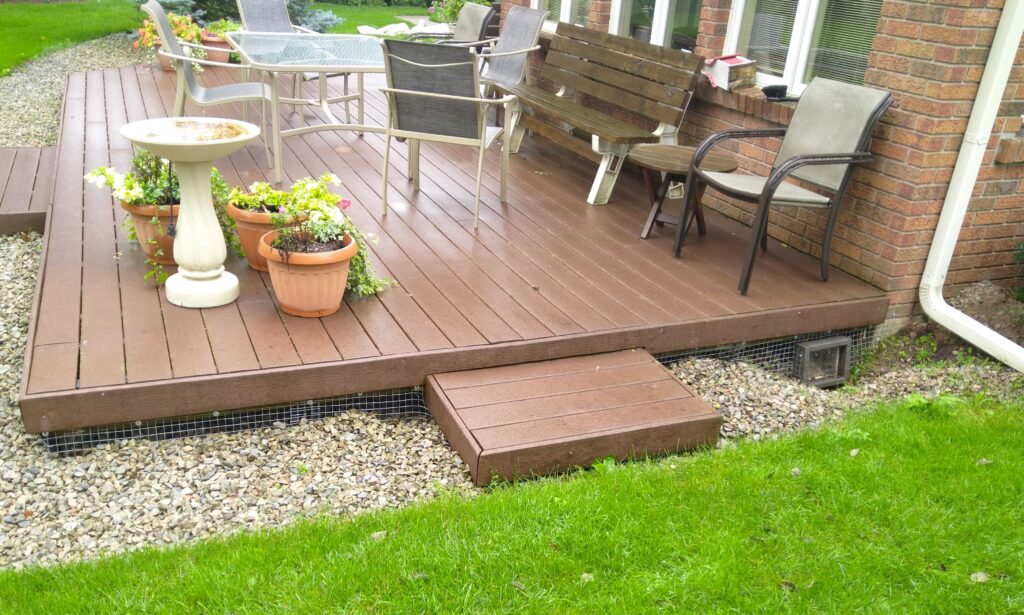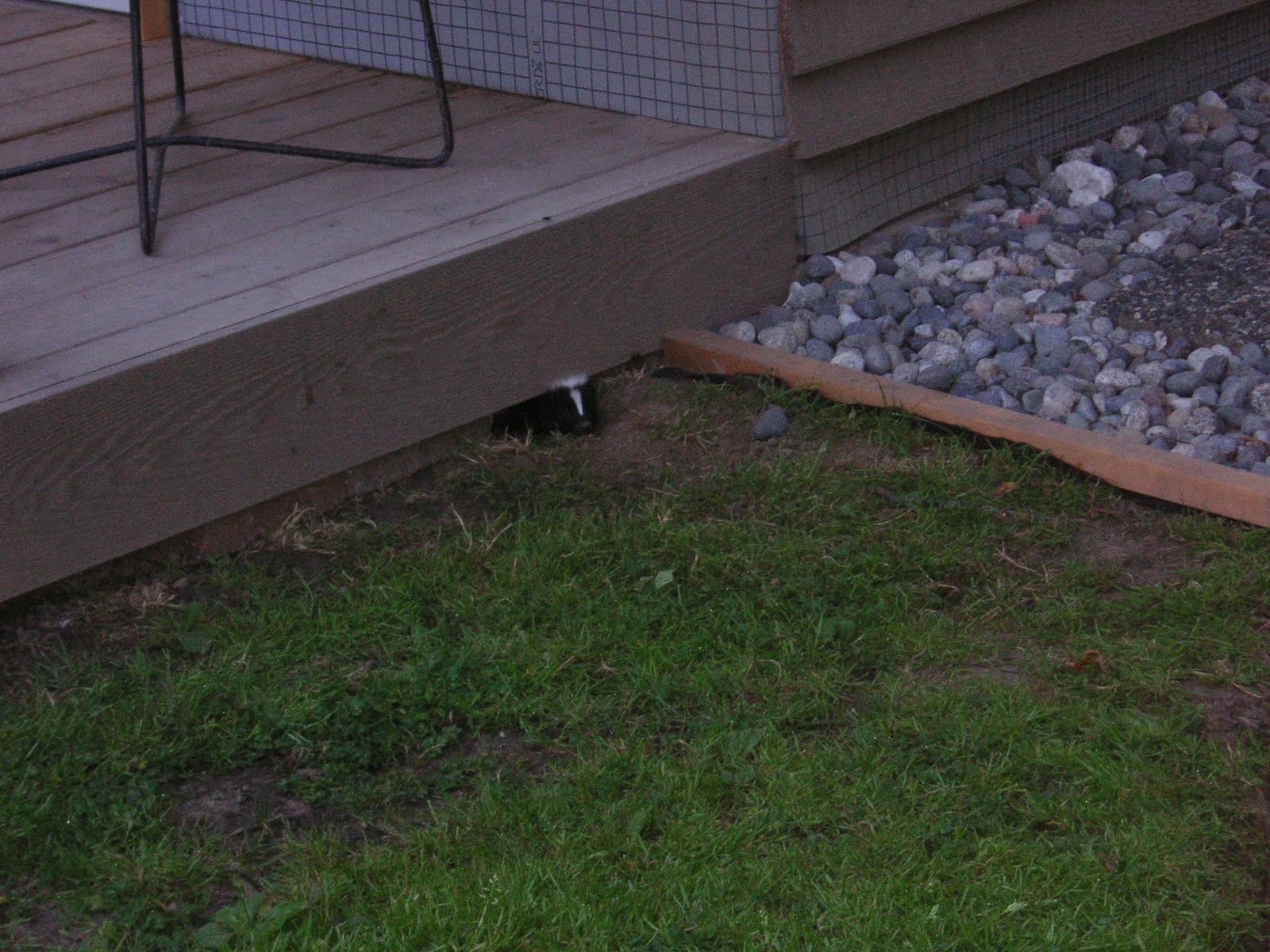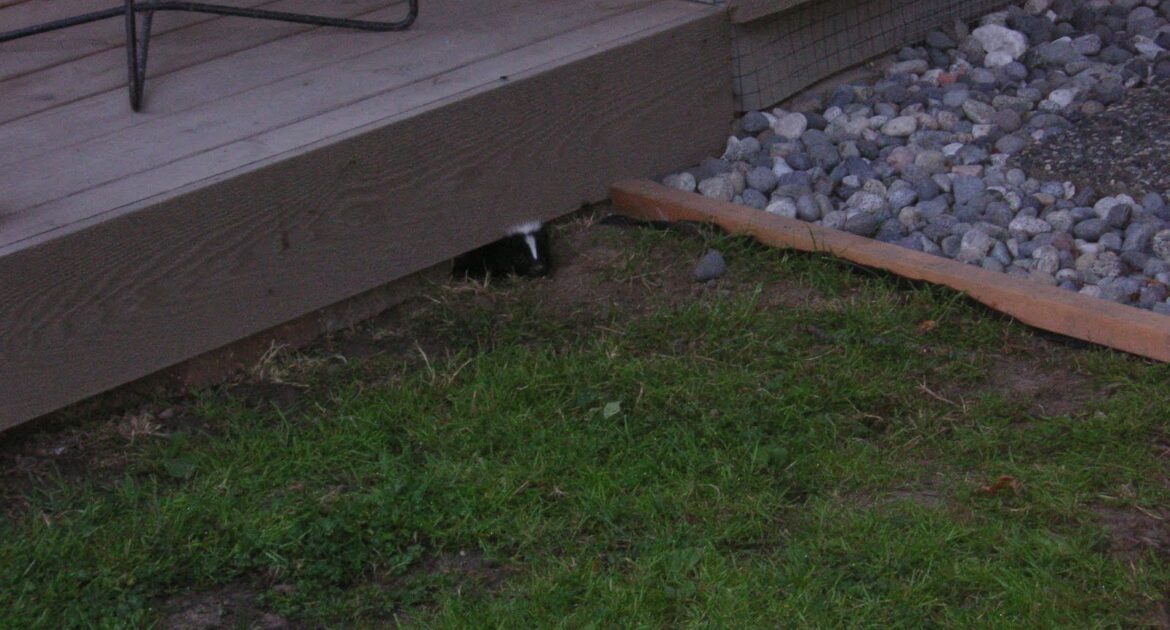Residents of Coquitlam and the Vancouver Metro region can attest to the variety of odd smells that waft through the air. In fall, the odour of skunks often dominates the mixture. Have you ever wondered, what do skunks do in the fall that causes such a strong smell? The answer is that babies are on the move and the entire skunk family is preparing for winter. Here are answers to some frequently asked questions about skunk behaviour and keeping skunks out of your home in the fall.
What Do Skunks Do in September?
Most baby skunks are born in May. They stay inside a cozy den for the first seven weeks of their lives, completely dependent upon their mothers to take care of them. By the end of summer, they have grown enough to start following their mother out at night to forage, and by September, they are almost full-grown.
Baby skunks eventually begin wandering away from the family group to explore and look for food on their own. In the process, they find many things that startle them and cause them to spray a noxious liquid from a gland under their tails. The number of young skunks on the move is one reason the skunk smell is so strong during September.
How Do Skunks Prepare for Winter?
What skunks do to prepare for winter is gorge themselves on as much food as they can find. Their diet consists primarily of grubs and insects, so you may notice them digging in your yard more than usual in the fall. Their goal is to gain a layer of fat to keep themselves warm and to provide calories when food becomes scarce.
Skunks do not technically hibernate, but they do slow their metabolisms down during winter to conserve energy. Female skunks and their babies tend to stay in their burrows when temperatures drop below 0 degrees Celsius, and males do the same at -10 C degrees . Thanks to southwestern British Columbia’s mild winters, it is possible to notice skunk activity at any time of year.
How Can I Prevent a Fall Skunk Invasion?
Skunks often choose to dig under porches and sheds in residential areas. So if you notice skunks on your property during the fall, it is important to prevent them from establishing a winter den where you don’t want them. For example, skunks will dig burrows under any of the following structures:
- Porch steps
- Decks
- Sheds or other outbuildings lacking a foundation
- Fallen trees
- Abandoned vehicles
Here are a few things you can do to help prevent skunks from spending the winter near your home:
- Bring pet food inside at night.
- Securely fasten lids on garbage and recycling bins.
- Install lights with motion sensors.
- Remove stumps and logs from the yard.
Can Skedaddle Stop What Skunks Do?

Prevention is key to keeping skunks away, but sometimes these quiet little animals end up in hard-to-access places that people would never suspect. Homeowners usually don’t know the animals are there until the skunk smell becomes a problem. At this point, there is no option except professional skunk removal.
Skedaddle technicians are experts in locating skunk dens. We will remove skunks humanely, making sure mothers and babies are reunited. We will then fill in any burrows and prevent entry beneath porches and other structures.
If you see or smell a skunk on your property, don’t try to handle the situation on your own. Skunks are easily startled and you do not want one to spray you or your pets. Contact us by phone for a home inspection. We know what skunks do and how to keep them away from your property for good.




